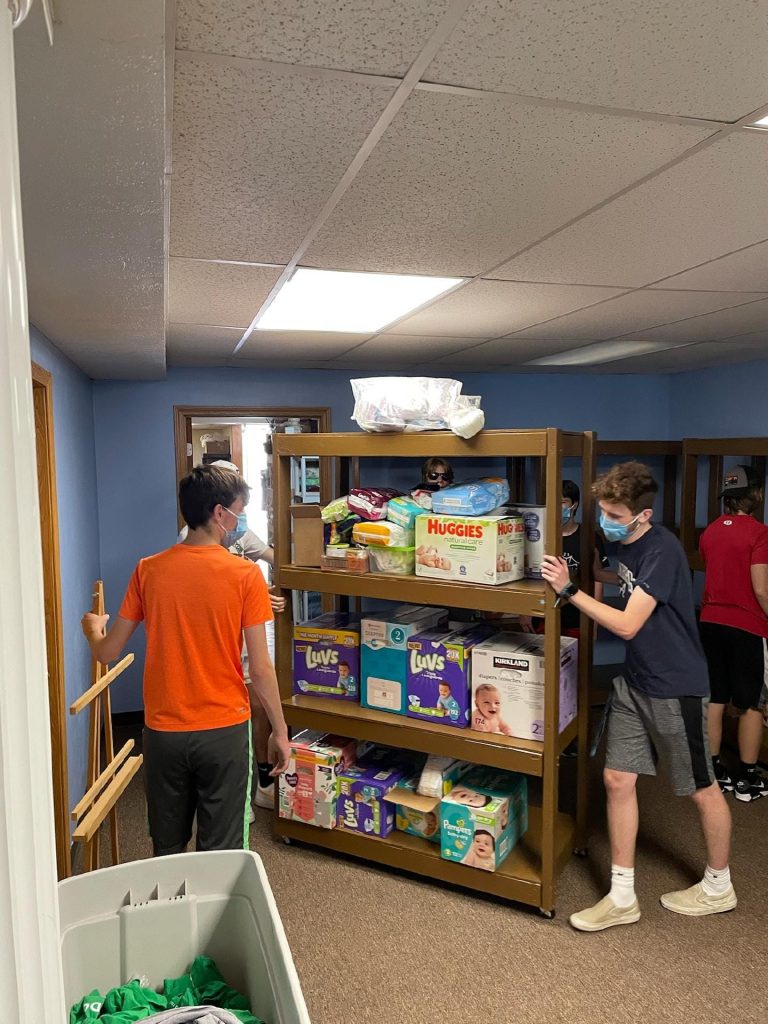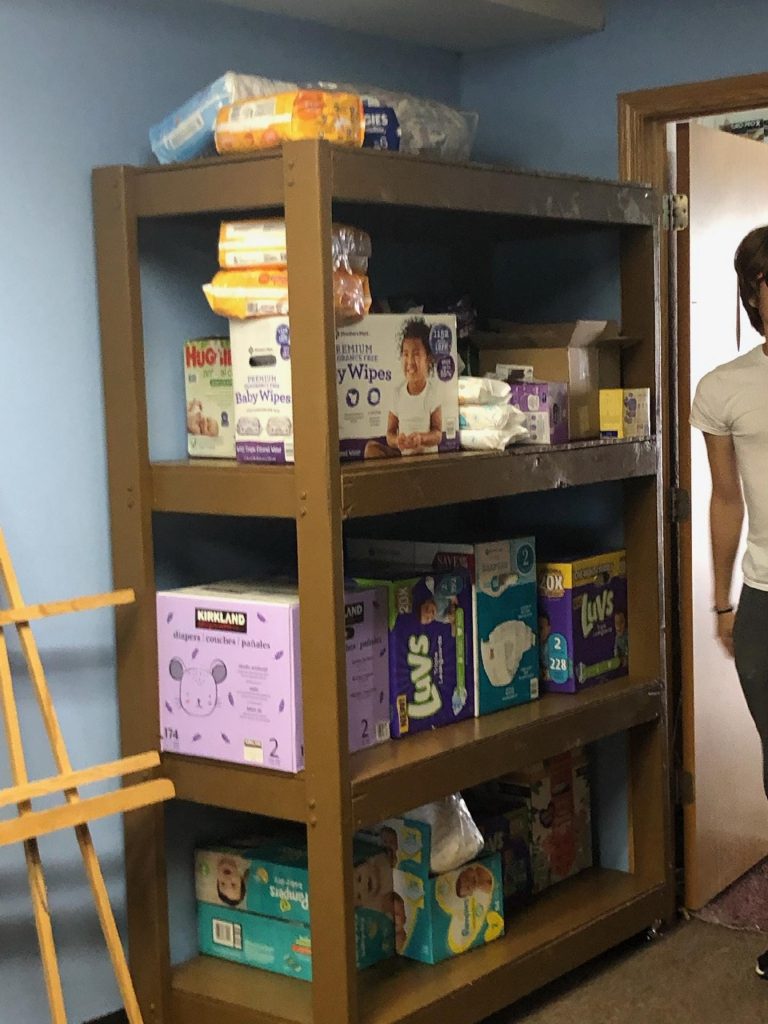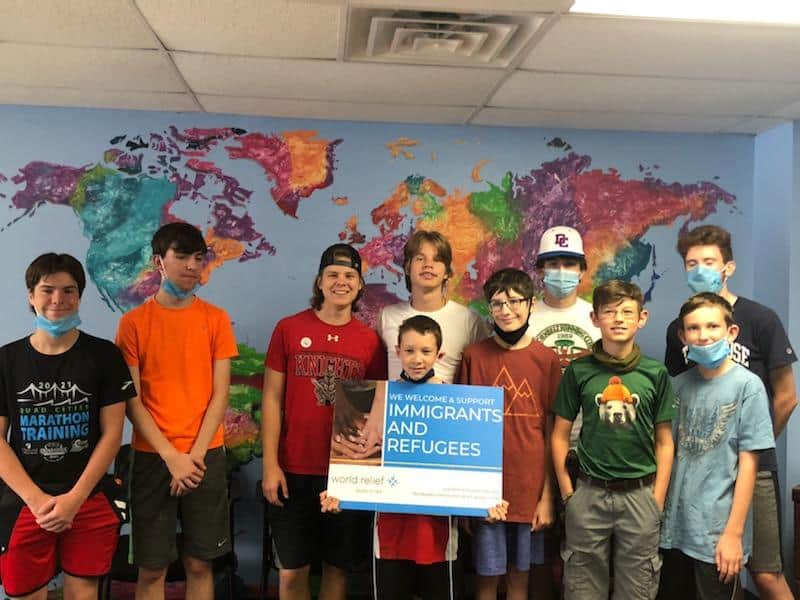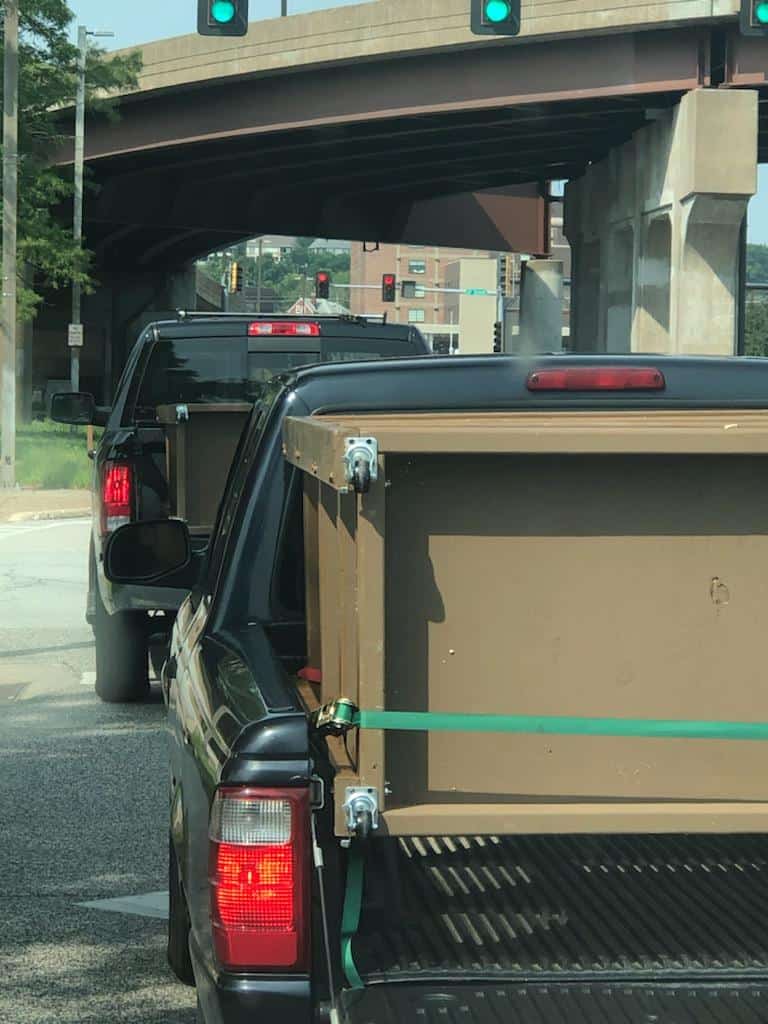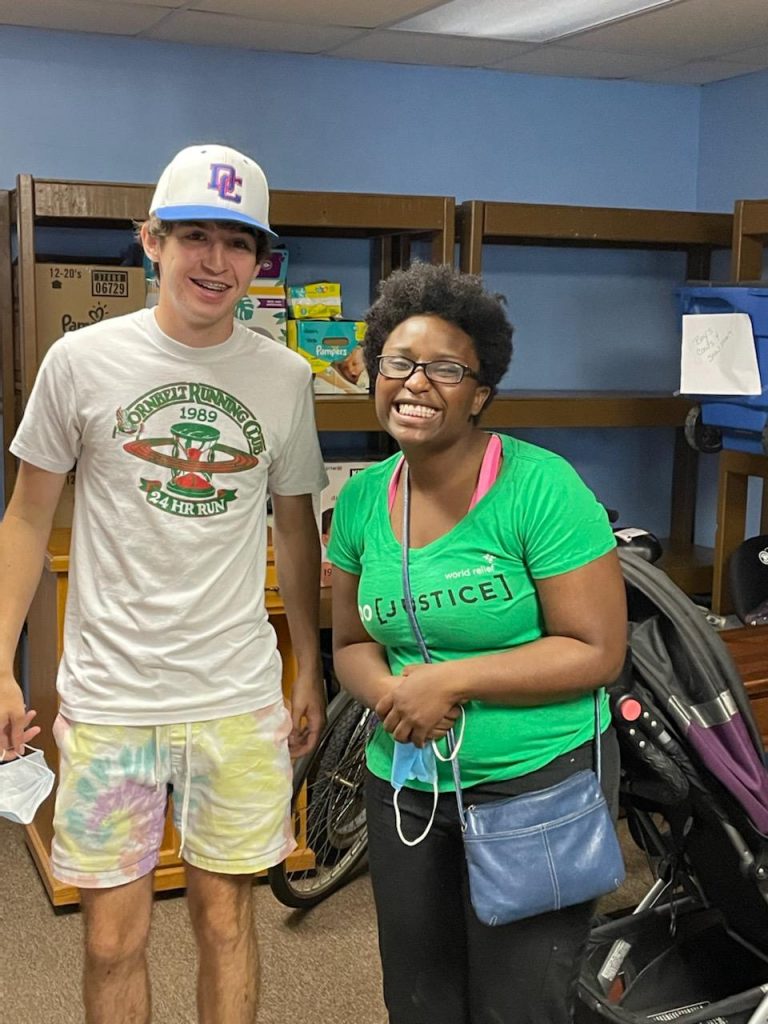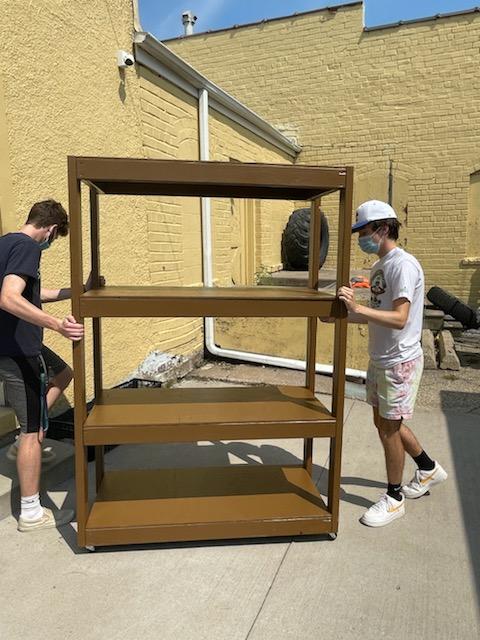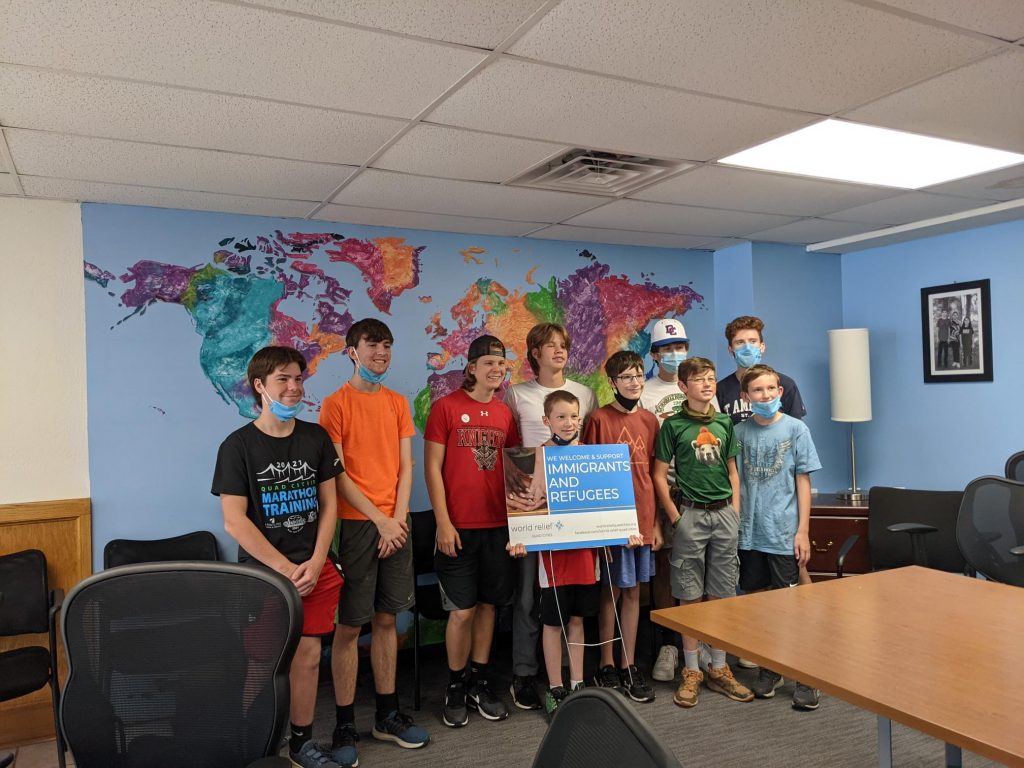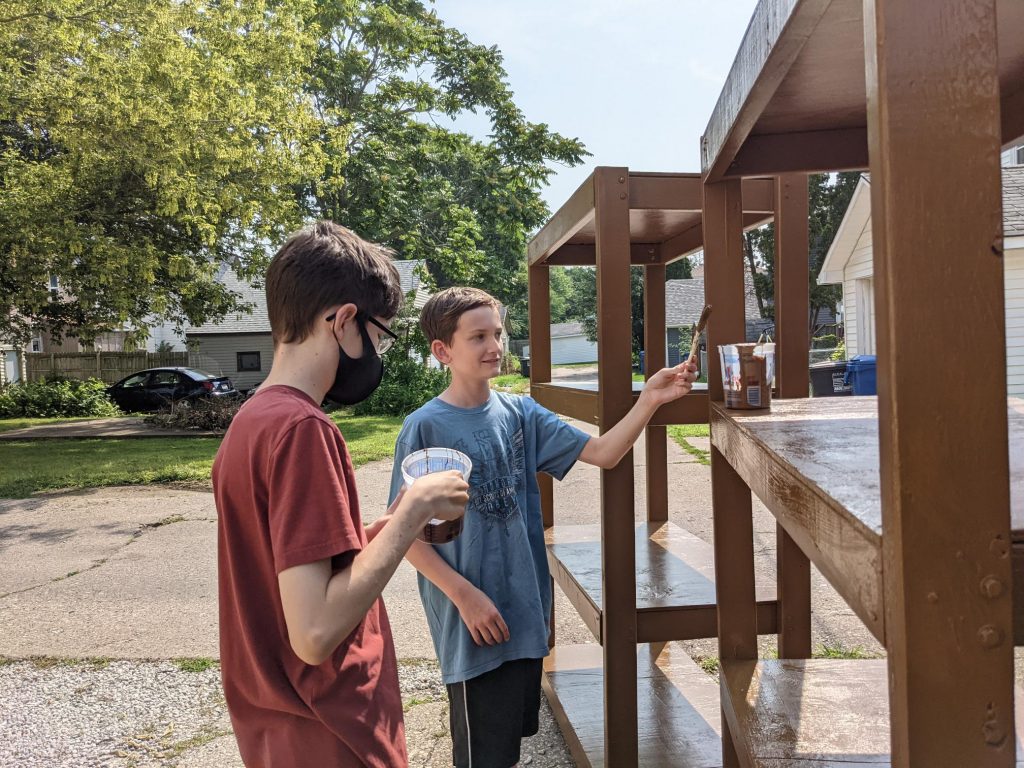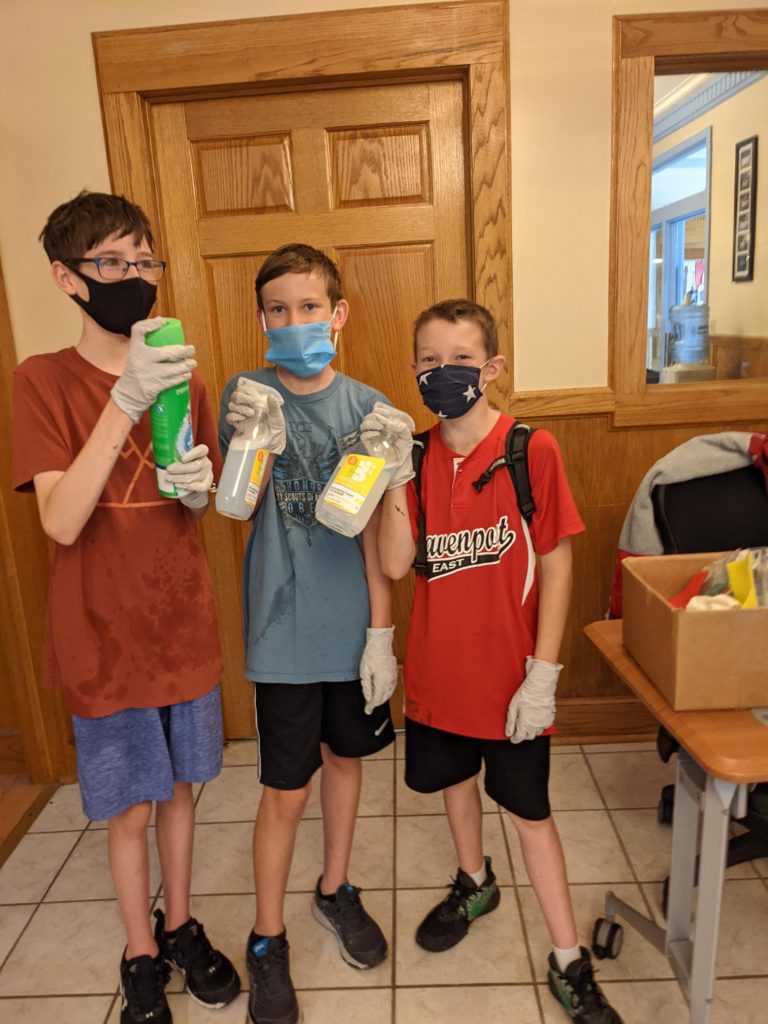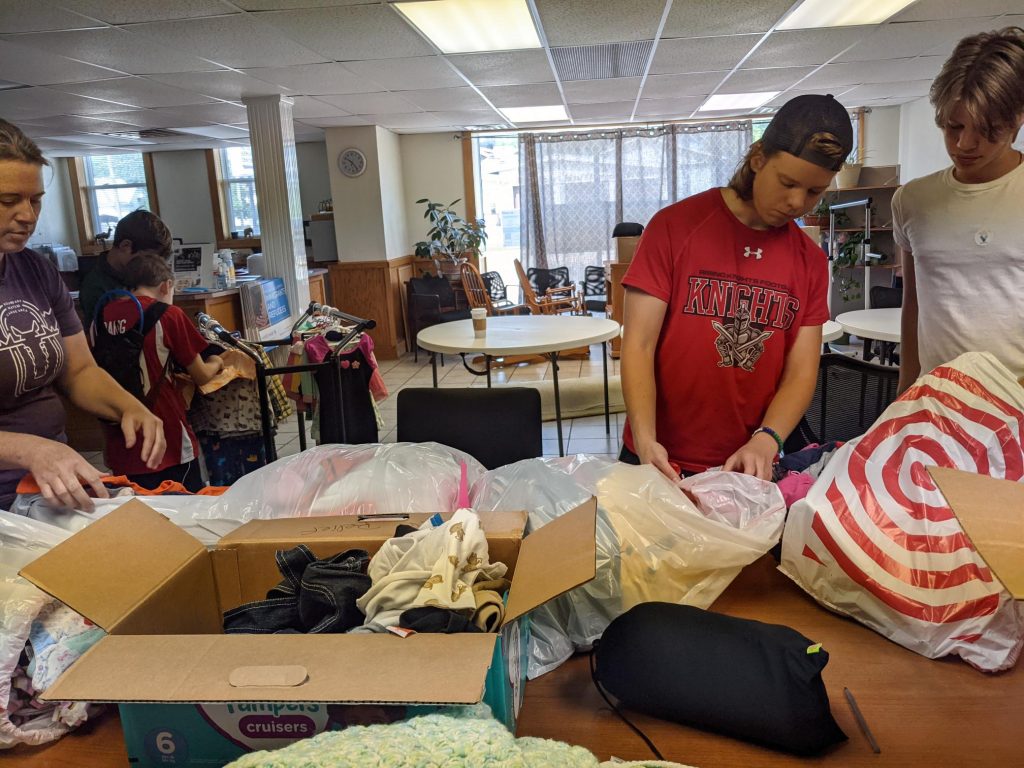Stories
Pascal’s Story
Pascal Ramadhani identifies as Congolese, but he was born in a small village in Tanzania called Kigoma. With its vast mountains and miles of blue water, an image search of the scenery paints a striking contrast against the refugee camp he spent the first ten years of his life in.
He grew up under the watchful eyes of his community members. Everybody was “always outside,” more like family than neighbors. They helped care for Pascal and his four younger brothers when their mother and grandmother were busy.
But for young Pascal, the social pressure of constant observation sometimes had an opposite effect. He struggled to find a place where he was allowed to be himself.
His school’s rules were more like laws. And as the eldest sibling, he felt guilty that his mother had to pay for five school uniforms on her own.
“I felt like I couldn’t be free, couldn’t do anything,” he said, “it felt like nobody could help me out.”
Still, Pascal prefers to focus on the good that got him through hard times. From “day one,” he wanted to be a dancer. Dancing and adventuring with his friends were opportunities to leave the day behind and cherish the moments where he could truly be himself.
“It was a bit rough, or tough, but it was fun at the same time. When I was young, I remember my friends and I used to go hunting, and climb mountains… then we were free, you know?” Pascal recalled.
He never imagined he would live in the U.S. After transferring to a different camp, a plane that was supposed to go back to Congo changed its flight route. Then, his family saw their name posted on the resettlement board.
“We didn’t ever think we would come here, we never even talked about it. They always post on the board to let people know who will come, but you have to have a case, a reason,” he said, I believe in God, in Jesus Christ – if it wasn’t for Him I wouldn’t be here.’”
In 2010, they landed in Chicago in the middle of winter, with staff and volunteers from the World Relief DuPage office there to greet them. The snow-covered skyscrapers were like nothing he’d ever seen before. Even his new home was a lot to take in.
“The food was different, and in Africa when you want to get food or water, you have to go out. Here, everything is in the house,” Pascal said, “then, Freshman year, no English, it was tough. Imagine you go to Tanzania and don’t speak Swahili.”
He knew that the next few years would be filled with obstacles. But this time, Pascal didn’t feel helpless – he felt empowered by the chance to build his own support system.
He surrounded himself with people who spoke English and joined the cheer team because he liked “doing flips.” After graduating high school with plenty of new friends, Pascal was accepted into DuPage College. His family was his number one priority, and with enough space to flourish, they had grown closer than ever.
His mother’s health problems started during his second year of college. He paused his education to care for her and found opportunity in the Quad Cities
“My mom is the one who raised us. She’s the greatest. Sometimes, when I look at her, I feel women are powerful, because imagine raising five kids by yourself. She gave us everything that we ever could have dreamed of,” Pascal said.
The encouraging staff at World Relief DuPage inspired him to pursue a career in sociology. After a year at Blackhawk, he applied at World Relief Quad Cities. He “couldn’t believe it” when he got a call back. It was a “great moment.”
Pascal hopes to get married, start a family of his own, and go back to school to finish what he started. He became a U.S. Citizen in 2020, and hopes his story will help others like him.
“There’s a lot of people like me, so hopefully another person can hear my story and know that I’ve been there and that everything works out. That’s why I want to help all these newcomers, because it was tough. I want to give back.”
Dancing is no longer the only way for Pascal to be free. In giving back, he’s finally found his niche.
Written by Erica Parrigin
A Father’s Wish
For privacy, the program participant’s name has been abbreviated.
When A left Rwanda five years ago, she left behind not only her home but also her father. She, her mother, brother and sister had completed the long process of applying for refugee resettlement, but her father had not. She was being offered a chance at a new beginning, and her father would not be coming with her.
When she arrived in the U.S., she was plagued with doubts. The language was difficult, school was different and people were unwelcoming. Yet despite the adversity that she faced, A remembered why her family had decided to leave her home and father.
“When I first left Africa, my dad told me that the main reason we came here was to have education,” said A, now 19. “Because of that, I will work so hard so that I can get a scholarship to go even higher, not just to high school, because in my family, I’m going to be the first one to go to university.”
New Beginnings
So at the age of fourteen, A arrived in her new home, determined to make the most of it. Her family had been vastly shaken; her sister was pregnant with twins, and her husband had also been left behind.
School was a refuge, but it was also filled with bullies.
“Some of the [students] were really smart, and they motivated me to keep going—even the bullies at my school because I didn’t want to become what they were calling me,” A explained. “Some of them would say ‘Go back to Africa. You’re not going to achieve anything here.’”
Rather than being deterred, however, A used the words of her father and those of her adversaries as motivation: “I was like ‘I’m not going to become what they are calling me. I’m going to keep going.’”
Over the next four years, A pushed herself to learn English, to study hard and to take advantage of the opportunities presented to her. Even though school was very different—she no longer had to walk there every day, and she no longer risked receiving a “whooping” for being late—it was her chance to start over.
“It’s just that we didn’t have a lot of opportunities [in Africa], but here students have a lot of opportunities,” said the recent Sheffield High graduate. “It’s just that some of them don’t care. Some of them don’t want to use them. That’s what makes it different.”
Seizing opportunities
Yet with the help of World Relief Memphis and her friends and family, A seized the opportunities in front of her. She studied hard, making good grades despite the temptation to stray like some of her fellow students.
“I didn’t want to fit in, I didn’t want to do what they were doing because it would have affected my grades,” said A, the youngest of three. “So, I was just me.”
As graduation approached, she had the grades to receive a scholarship to go to university, but she didn’t know how to do so. When she learned about WRM’s youth mentoring program, she decided to participate.
“I didn’t have someone to talk about my financial aid, to choose the right school, and the right classes,” she said.
With the help of her mentor Mary, A began to see that her fears of failure shouldn’t stop her, that college was in fact a possibility.
A wish fulfilled
Thanks to her support system, A will now be attending Oakwood University in the fall as an applied mathematics and engineering major. When she told her father, who is still in Rwanda, he was very happy. As for herself, she’s proud to have graduated with a good GPA that allowed her to attend university.
Her World Relief mentor will still be in Memphis, but she plans to keep in touch and return home for the holidays. Her next goal is to prepare for college and eventually her career as an engineer, but before that, she has another one to accomplish.
“I’ve decided to follow Jesus so I’m going to prepare myself for eternal life,” A said, who grew up in the church and is an active member of the choir. “Also, keep choosing friends that can help me with that. That’s my goal.”
Knowing that, she hopes to one day be a mentor herself: “When you decide to walk with Jesus, that is something you have to do . . . I want to help people to build their relationship with God.”
Already, she has begun to think of how her own experiences could allow her to help others one day. To other students coming from Africa and situations similar to hers, her advice would be to persevere.
“I would say to the students that are coming from Africa, even the students [already] here—just keep going. You don’t have to figure everything out right away,” A encouraged. “Just be yourself and do the things that you left home to do. It’ll be hard here, but ask for help when it’s needed.”
A, we are so proud of you and your accomplishments, and we wish you the best of luck as you begin your college career! Thank you for sharing your story with us.
If you want to play a role in the lives of our youth like Mary did for A, come join us as a youth mentor.
Advocating for the Marginalized
Pastor Bill Bigger of Hope Valley Baptist Church shares his personal experience of welcoming an Afghan SIV family to the Triangle
Given the political rhetoric of recent days and weeks, I am dealing with a variety of emotions and want to share an experience I recently had. I spent some time visiting with a young man who came with his family to be our guests at Hope House less than 48 hours before. Hope House is brick ranch home on our church property that we renovated to temporary shelter to refugees when they first arrive in the country through World Relief.
Though our new guest, his wife, and 3 preschoolers are still adjusting to a country and time zone very different than their own, he saw me in the church parking lot and invited me to come sit down in the house and offered me some tea. We had met briefly the day before, and he seemed eager to talk and to express his gratitude for a nice place to stay for several weeks while more permanent housing is being found. He told me that this transition is “very difficult,” but his spirit so impressed me. While his wife speaks almost no English, she sat with us and was very gracious as well. One of the young children was asleep on the couch, another was asleep in a bedroom, and a 4-year old fell asleep on her father’s lap while we talked (though it was 10:45 am in Durham, it would have been 8:45 pm back in their homeland). When I commented on how cute and precious the children are, he translated for his wife, and they both broke out into huge smiles that resembled the joyful smiles of every other proud parent I have ever met. I certainly grinned as I watched him pat his daughter’s back as she dozed off on his lap and wondered how many times I had done the same thing with one of my children when they were young. I didn’t see a “refugee.” I saw a husband and father and new friend who loves his wife and his children.
This husband/father spent some years as a translator for the US Special Forces and knows 5 languages, but when I asked him what kind of work he would be seeking, he noted that he is not ashamed to take any job and simply wanted to work to provide for his family. I was almost tearful as I listened to him talk about some of his experiences and as I sensed his kind heart and warm spirit. Though I think that he and his family are Muslim, I felt like I was beginning a friendship and recognized that we share much in common as husbands and fathers. I look forward to spending more time getting to know him, listening to his stories, and seeing how he and his wife love their precious children. I was blessed by this short visit.
I generally avoid sharing political thoughts or opinions on social media and am glad that I get to serve a church which has members from all across the political spectrum. I don’t always agree with the social media posts by my fellow church members and friends, and not everyone will agree with what I say. Still, though, we are brothers and sisters who belong to each other and need each other. We are called to love others as we have been loved by God.
In light of recent news stories, however, I want to speak my heart and say that regardless of our varying opinions on immigration and refugee resettlement and how it should be done, I was reminded again during this visit that amidst the labels and acronyms being tossed about so casually, we are talking about individuals and families who simply want to make the best life they can for their loved ones. As Christians, and frankly as people in general, we must not accept attempts to label people negatively based on their nationality, their ethnicity, their language, or their socio-economic background. The more time I get to spend with refugees and recent immigrants, the more impressed I am by their courage, their determination, and their commitment to seek freedom and a better life in order to take care of those who are precious to them. Most are still concerned about loved ones back in their home countries where it is often far from safe. I can’t imagine what it would be like to walk in their shoes.
Amidst the rhetoric and news coverage, please remember that every one of these people whose futures are being tossed about as pawns in a political game are beloved by God and are created in the image of God. They are individuals with hopes and dreams who deserve our love, our compassion, our care, and our warm hospitality. I still have a lot of learning and growing to do and I certainly don’t have all the answers, but I am praying that I will be the kind of person who loves and advocates for the marginalized, the vulnerable, and those too easily overlooked and dismissed.
Special thanks to Pastor Bill Bigger of Hope Valley Baptist Church for this guest column. We need you and your church to join us in welcome like Hope Valley! Learn how – click here.
Mentorship Alum Thankful to God
Ornella credits World Relief’s Mentorship Program for help in overcoming challenges of life in a new country
Ornella fled Cameroon with her family due to war and resettled in Durham, NC with the help of World Relief in 2017, when she was just 17 years old. Her mother and many family members tragically died prior to her arrival. Ornella had little English, but she held – and maintains – a firm belief that God has a purpose for her here in the U.S.
Within just a few years, Ornella has become fluent in English, a graduate of Jordan High School, a student at Durham Technical Community College, a camp counselor, a trusted and beloved friend, and a valued member of All Saints Church in Durham. Ornella acknowledges that the road to community integration had many challenges. “It wasn’t easy for me to come to a new country not knowing the language. But I like to be around people who talk a lot, and I learned English faster that way!”
She particularly credits World Relief Durham’s mentorship program with providing meaningful social interaction, health and wellness education, and support for her efforts to learn English, get a driver’s licence, find a job, and more. Mentorship Coordinator Selina Máté has provided consistent and compassionate mentoring to Ornella through high school and beyond. “Selina changed my life. She said that things would get better, she told me to keep going. I used to think I was alone, but I took Selina’s advice and moved forward with my life. Selina is like a sister to me!”
Selina feels the same about her relationship with this remarkable young woman. “Working with Ornella has been one of the biggest joys of my time at World Relief. Our journey together has encapsulated what a true mentorship journey looks like – growth, difficulties, celebrations, and togetherness. Ornella has turned to the World Relief Durham team with every hardship she has faced over the last year. While some have been especially tough situations, it has been an honor to be entrusted with that role.
Alongside the challenges, Ornella has shared every celebration with us. We’ve had the opportunity to watch her graduate high school, begin her first job, and start college. Meeting Ornella has been nothing but a blessing and I am thankful to have spent the last year mentoring her while she begins to navigate adult life.”
Ornella radiates joy: she is truly unforgettable and has a bright future ahead of her. Her ability to find the positive, to create a new life for herself in a different country, to become a successful scholar and employee, and to inspire her friends at World Relief Durham and throughout her new hometown is beyond admirable. Though COVID-19 is changing her plans and limiting her interactions, this resilient woman is undeterred: “The virus can stop me from going out, but it won’t stop me from continuing my education. Life keeps going on, and I have all the support I need. Why would I complain? I am so thankful to God.”
Learn more about our Children & Youth Support Programs, including the Mentorship Program, here.
The Faith of Aumonae and Siafa
Clients Aumonae and Siafa share their journey of love and faith while awaiting reunification
U.S. citizen Aumonae Johnson met her fiancé, Siafa, in 2016 during one of her annual mission trips to Liberia, where she was born. She describes how their “souls connnected” when they met. Aumonae and Siafa quickly entered into a relationship and have been together in their “journey of love and faith.” They stay connected through technology, especially Facebook Messenger and WhatsApp, but cherish their time together during Aumonae’s annual trips to Liberia.
Two years ago, on July 26, 2019, Siafa asked Aumonae to marry him while she was visiting Liberia and she said yes! After returning to the United States, she filed a fiancé visa petition for Siafa that was approved in April 2020. Aumonae was hoping that the processing at the U.S. Embassy would happen quickly, as is typical with fiancé visa cases, and she would be able to return to the United States from Liberia with Siafa in August 2020.
Unfortunately, because of the pandemic, Siafa’s visa has been delayed indefinitely, causing the couple emotional, mental, and financial strain:
“Being apart has no way been easy. Our strong communication and our faith have kept us going…a process that usually takes nine months has taken almost two years from start to finish. It has been very stressful and it has taken a serious toll on us mentally, financially, and health wise. Families are supposed to be together, not apart. We cannot even plan a wedding because we do not know what to expect. My prayer and hope is that all families are reconnected. (The separation) is very frustrating and I hope something is done soon. I want to continue to make beautiful and lasting memories with my husband-to-be. We have been patiently waiting. I know that it is God’s will for me and Siafa to be together.”
Aumonae Johnson
Aumonae is a client with our Immigration Legal Services Clinic. Her story is one that illustrates the but one of the challenges immigrants can face when trying to reunify with family and loved ones.
Your support of World Relief Durham has made our clinic’s work possible, even during a time of reduced refugee arrivals and massive challenges to visas and citizenship pathways. Thank you for helping us keep the faith with clients like Aumonae and Siafa.
Learn how to support our Immigration Legal Services work here.
Remote Tutoring? No Problem!
Youth tutor Fehmi Neffati reminisces about his experiences volunteering with our students.
As a tutor with World Relief, the summer was full of surprises. I really enjoyed working with a group of amazing people who were highly driven, extremely smart, and very organized. With me being fresh out of high school and them being upperclassmen and graduate school students, every day was a learning experience for me. I had formidable supervisors that made sure we were comfortable and were not being ‘Zoom fatigued.’ They treated us to a lovely DoorDash meal and were there for us whenever we needed anything.
I remember the day when Will, a colleague of mine, wore his Tunisia Shirt to meetings. That drew a smile on my face. I also remember how smart and resilient the kids we worked with were, I still recall a student of mine talking to us about global warming and how nature is angry at us. I remember how were having a talk with Peire Cruz and Advaita from UNC Refugee Wellness about racism and they asked the kids what did they think would happen if we were all the same, and someone’s reply was: ‘Life would be boring.’ I thought to myself, ‘Wow, this kid is definitely going to be a leader!’
Of course, there are the funny moments when students kick me out of my own Zoom room or call me ‘Uncle’ Fehmi. I loved every day of the whole experience and how eye-opening it was. I loved how respected I felt even though I was way younger than everyone else on the team. I loved how I had a direct positive effect on people’s lives. There are, of course, more fun instances than I can list. Simply: thank you World Relief for offering me that opportunity.
Our youth tutors were flexible, consistent, and dedicated throughout the transition to online learning, and even as we start to have more in-person opportunities for students and educators, we are grateful to volunteers like Fehmi who bridged the gap with such energy and devotion. Consider joining us as a volunteer! Click Here.
Soulmates Wait to be Reunited
Soulmates Meet in a Refugee Camp
Nurul Ali Ahmed is a new US citizen whose forced migration journey began in a small town in Burma, Southeast Asia. Born Rohingya, a minority stateless ethnic group long persecuted by the Myanmar government, Nurul fled from targeted violence and persecution with his family at the age of 14, ending up in a refugee camp in Bangladesh.
It’s there that Nurul met and married his beloved wife and began their life together. Soulmates, they lived together in the refugee camp for 13 years, welcoming three beautiful children. Unable to return to Burma due to tremendous persecution of the Rohingya, and with no end in sight to living in the refugee camp, Nurul knew he needed to seek additional work in his field of tailoring to provide for his growing family. Because of his experience and accomplishment as a master tailor, Nurul was invited to join a tailoring firm in Malaysia, an opportunity that provided much greater financial stability – and hopefully a future of moving out of the refugee camp – for his wife and three children.
Tragedy in Malaysia
While Nurul and his family were saddened by his move to Malaysia, they were grateful for the additional financial support, with dreams of being resettled as refugees together in the near future. For two years, Nurul was steadfast in his work, with apprentices learning under his tutelage. He worked hard and faithfully sent his income to support them.
In the early hours of an otherwise unusual morning on his way to work, Nurul had a motorcycle accident that left him hospitalized with a minor injury to his leg. “I was in such severe pain after I got out of the hospital a month later that I didn’t think I would live even through the week. But I think God wanted me to live since I’m still alive.”
In a series of tragic medical missteps and neglect, Nurul underwent six surgeries over the following 15 months, having his leg amputated little by little due to an untreated infection that continued to spread up his leg. Constantly in severe pain, he begged the medical staff for medicine but they refused, threatening to kill him and leave his body where no one would find it.
After his life was threatened by the people tasked with caring for him, Nurul contacted the local UN office, whose staff came to the hospital and started questioning how a minor injury led to full leg amputation. After investigating the tragic series of events, they determined that severe medical malpractice resulting from hateful discrimination of Rohingya people led to Nurul’s leg amputation.
Over the course of a year, the UN worked with Nurul to process extensive paperwork to be approved for refugee resettlement. He was overjoyed when he got news that he would be resettled as a refugee in Durham in 2015! While it meant he would be half a world away from his family, he was deeply hopeful that he’d receive better medical care and that his family would be resettled as refugees in Durham before long.
A Day to Remember
Nurul vividly recalls September 25, 2015, the day he arrived at Raleigh-Durham International Airport, thick with hope and promise for the future. World Relief Durham met him at the airport and drove him to his new home, a furnished apartment with a stocked fridge, homey touches, and a Burmese welcome meal.
The next weeks and months were a blur of caseworker meetings to get him enrolled in social services, establish a bank account, and all else that goes into rebuilding your life in a new country. He was deeply grateful to have his mobility significantly improved after being fitted for a prosthetic leg at Duke University Hospital. Nurul says that between the intensive case management support, excellent medical care, and kind volunteers, “I just knew my life was going to be much better here. World Relief helped me in every way, only for my welfare. But I missed my family terribly and longed for us to be all together.”
Hope for Reunification
Beginning in 2017, Nurul filed a petition for his family to be reunited with him in Durham. Sadly, his family is still waiting to be approved for refugee resettlement. Their case has remained pending for multiple years due to immigration policies in recent years that have kept refugee families apart. World Relief Durham has recently assisted him with writing advocacy letters to bring attention to his case.
This past year, Nurul participated in World Relief Durham’s Tech Literacy Group and Rohingya Men’s Support Group. He received a new laptop and weekly training on utilizing technology to connect to the broader world through Zoom, email, Microsoft Office, and online banking. The Rohingya men’s group enabled him to deeply connect with people from the same language group and receive training on wellness, the importance of mental health, and strategies for incorporating wellness into daily life.
“I try to think positively and stay hopeful that my family will be here soon. But I can’t work without my wife here to help with transportation because I use a wheelchair, and I can’t do all the things I imagined I’d be able to do in the US. I am very hopeful that the new President will make things much better for refugees like my family who are waiting to be together again.”
Nurul recalls the extreme pride he felt on December 7, 2020 when he became a US citizen. “I was very happy that day and I really want to thank the people of this country. I came to this country as a disabled person and then I became a citizen. I still can’t believe it.”
Now the soulmates wait to be reunited. “My life will get better when my family arrives. Please pray that it happens soon. I hope my story reaches you and many others.”
We are so grateful to Nurul for sharing his story. We need you to help us reunite families like Nurul’s, and stick with them as they rebuild. Click this link to find out how to join us as we help refugees and other immigrants [Re]Build their lives in the U.S.
Stone to Seed: Hess’ Story
Hess grew up in one of Thailand’s seven refugee camps. It was crowded, hot – “like a slum.” Small bamboo houses with leaf roofing were packed in tight, numbered sections, each section containing up to 400. Thousands of people were enclosed by the wire fences that bordered the camp.
“The population was roughly 70,0000 or 80,000, give or take,” he said.
The camp’s inhabitants couldn’t afford to think in the long-term; all that mattered was getting through the next day. 15-year-old Hess was no exception. Living day-by-day felt hopeless, and he never thought about his career or what he would do as an adult.
Hess and his schoolmates found comfort in soccer. He loved to imagine himself as a soccer player making it big in the tournaments one day, but he was also grounded by his desire to go to school and “get good grades.” He had as much fun competing with his friends in the classroom as he did outdoors.
Starting a new chapter in life often brings previous chapters to a close. Hess’ family applied to resettle in late 2007, and when they were selected in 2008, Hess realized he would have to leave his friends behind. The flight to the U.S. carried the hefty burden of homesickness.
When his family arrived, the culture and climate were unlike anything he had experienced before. Everyone around him spoke too quickly for him to understand, and it was stressful.
“I felt homesick. I had no friends. I’m like, I feel like an alien in the streets! And it was very cold, hard to adjust. The food, environment, culture – all a challenge,” he recalled.
But his family wasn’t alone. They had a support network of staff to schedule appointments, coordinate medical visits and school registration, and help lift the weight from their shoulders. Hess started to feel a little better, relieved by kindness and the opportunity to learn the language.
He re-enrolled in high school as a freshman, and his homesickness couldn’t hide his outgoing personality for long. Forming bonds became easier as time passed. And while they would never replace his love for his friends back home, his new friends helped restore his confidence. He began to knock on doors with the faith that they would open for him.
Now, as a part-time interpreter and full-time social worker at Karen Community in Rock Island, Hess meets clients with the same warm embrace that helped him feel accepted in his time of need. And he has “a lot of plans.”
“I hope to go back to my homeland and open up a business, to help educate children in my home country and influence them to see the world better,” Hess said.
The sense of loss that once sat like a stone on his chest became a seed. Once nourished by belonging, Hess grew to heights his teenage self would never have expected – and flourishes with every opportunity to give back.
Written by Erica Parrigin
An Ember of Trust: Marc’s Story
As a child, Marc wasn’t old enough to understand the chaos that enveloped the Democratic Republic of Congo. His family moved to Rwanda when he was four to escape the ongoing civil war. But the aftermath of the civil war left the country divided, and when he returned to DRC at age 12, he was exposed to a new kind of hatred that threatened his life.
“Everyone who looked Burundi or Rwandese had to be killed. Our neighbors started hunting us. If they asked you your name and it sounded Burundi or Rwandese, they would just kill you,” Marc recalled.
He was frightened, and the stress of always having to look over his shoulder left him drained. He craved the freedom of a peaceful childhood. “Even though I was a little kid, police and soldiers used to stop and interrogate me as if I was a man, which I could not understand. I wanted that to stop,” he said.
The dangerous environment drove Marc’s family to relocate to Burundi, where they were placed into a refugee camp. His parents and seven siblings lived in a small house made of mud with just two rooms. Only his sisters could sleep indoors, so Marc and his brothers found places to sleep outside. Despite the “bad conditions,” however, Marc felt more protected than he had ever felt before. He could play with other children without being bullied and they had enough food to eat.
Burundi conditions began to worsen in 2015. Each night became filled with the echoes of gunshots. Just before the turmoil could reach their camp, Marc and his family were selected to relocate to the U.S. It was a miracle.
Still, Marc was uncomfortable. Americans would often ask where he was from because of his accent. Having previously lived in a country that discriminated against his tribe, the endless questions made him feel like he had a target on his back. Resettlement services helped ease his discomfort; after helping his family find jobs, taking his brothers and sisters to school, and frequent check-ins, his caseworkers were the first friendly faces Marc had seen in a long time.
Then, without warning, medical disaster struck. Marc was unable to attend college as he had planned. Instead, he spent most of 2017 and early 2018 in and out of hospitals. The medicine prescribed for his eye problems destroyed his immune system and stomach.
“I was feeling a lot of pain in my stomach. I couldn’t breathe or bathe and was in very very bad shape. I was hospitalized in Chicago; more medicine and surgeries,” Marc said. He had to completely readjust after his long recovery period and was reluctant to start college.
His caseworker, Jen Wood,* met Marc’s struggles with compassion and encouragement. She slowly guided him back to his path with kind words that gave him hope. She told him he could do it, and he started to believe it.
Stillness is a learning process, but the kind staff that helped Marc understand American culture and uplifted him in his time of need reignited an ember of trust he had long forgotten. He’s working on his Liberal Arts degree at Blackhawk college and no longer sees the conflict of his past reflected in his future.
“Right now, I’m feeling good, because I can say that I’m safe,” Marc ended.
He sees a tranquil future abundant with opportunity – and all it took was the empathy of a few others to show him the strength in his heart.
Written by Erica Parrigin
In the Quad Cities, Eagles Give Back
Eamon Garton of Scout Troop 20 is working to achieve the highest rank in scouts: the Eagle Scout. While the title itself is an honor, his goal is to embody its meaning and the obligations it carries.
Eagle Rank “testifies that a Scout has an understanding of his community and his nation, and a willingness to become involved.” Earned by less than 2% of young men in scouting, it’s a pledge to fulfill obligations of Honor, Loyalty, Courage, Responsibility, and Service.
Becoming an Eagle Scout means a mission to give back to the community. To demonstrate his motivation, Eamon has taken on a project to help refugees and immigrants in the Quad Cities. When he learned that proper storage for donations and fresh food given to refugee and immigrant families is a huge priority, he made plans to install hand-built shelving and a large refrigeration unit.
The first step was fundraising. Eamon “sent letters to [his] family, friends, troop, and neighbors,” created a GoFundMe, and reached out to local hardware stores about unsellable lumber. In just a few weeks, he raised $2500.
Then, on Saturday, July 17th, Eamon and his troop took over our office to paint and install five rolling shelving units they had built by hand. And they didn’t stop there – they spent the rest of the day cleaning our office and organizing donations. Now, we have the space to accommodate extra items for families with specific needs.
Eamon, you have the qualities of an Eagle Scout and more. From our staff, volunteers, and families: thank you Eamon and Scout Troop 20!
Eamon is still seeking a refrigeration unit to finish his project and his GoFundMe is open for donations.
Photo Gallery
Written by Erica Parrigin












